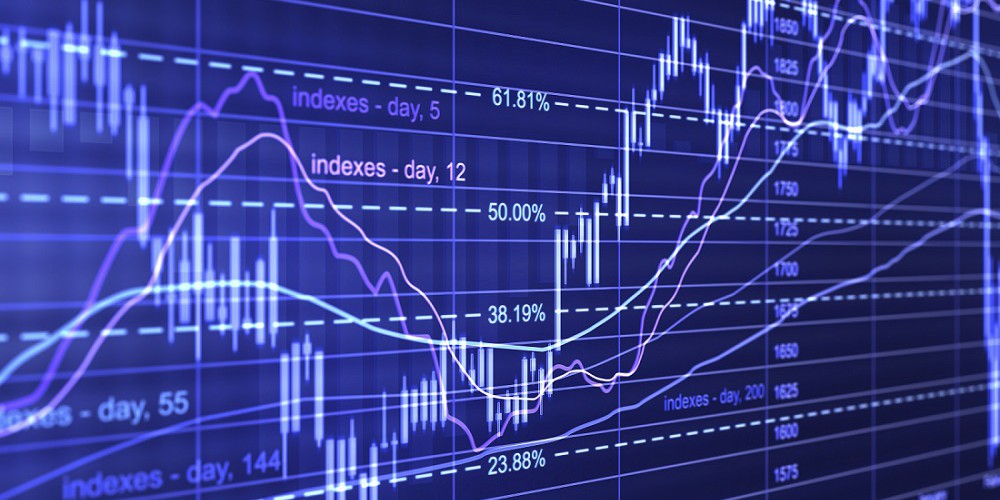Forex stands for foreign exchange market. This is a global decentralized market for the trading of currencies. It’s open 24 hours a day except for weekends. Trading occurs from 22:00 GMT on Sunday (Sydney) until 22:00 GMT Friday (New York).
Forex market includes everything that involves money. This is where all financial operations take place. Every time when you make money transactions, purchase something online and even when you buy ice cream at the local grocery store you, directly and indirectly, participating in it.
Everyone who is at least 18 years old, can make money in this market as a retail trader, with the help of a broker. Everyone has equal chances to become a successful and professional trader.
In terms of volume of trading, it is by far the biggest market in the world. Some firms specializing on the foreign exchange market had determined the average daily turnover of about $4 trillion or more (It varies in different sources). And it continuously growing.

![]()
Some History
 Currency trading and exchange exist since the money was created. It was a crucial element of trade during the ancient times so that people could buy and sell things like food, raw materials and so on.
Currency trading and exchange exist since the money was created. It was a crucial element of trade during the ancient times so that people could buy and sell things like food, raw materials and so on.
If a Greek coin had more gold than an Egyptian coin due to its size or content, then a merchant could barter less Greek gold coins for more Egyptian ones, or for more material goods. That’s why at some point in history, most world currencies that exist today had a value fixed to a specific quantity of a recognized standard like gold or silver.
The year 1880 is often considered to be the beginning of modern forex. The number of foreign banks operating in London increased from 3 in 1860 to 71 in 1913. In 1902, there were altogether 2 London forex brokers.
During the early years of the 20th century, trading was mostly active in Paris, New York, and Berlin, while Britain remained mostly uninvolved in trading until 1914. Between 1919 and 1922, the number of foreign exchange brokers in London very quickly increased to 17, in 1924 there were around 40 forex brokers.
 After World War II, the “Bretton Woods Accord” was signed allowing currencies to move within a range of only 1%. In Japan, the law was changed during 1954 by the “Foreign Exchange Bank Law,” so because of this, the Bank of Tokyo became the center of forex by September of that year.
After World War II, the “Bretton Woods Accord” was signed allowing currencies to move within a range of only 1%. In Japan, the law was changed during 1954 by the “Foreign Exchange Bank Law,” so because of this, the Bank of Tokyo became the center of forex by September of that year.
The system was highly ineffective and The U.S. president Richard Nixon is credited for the ending of it. All attempts to bring back the fixed exchange rates failed, and in 1973 currencies began to float against each other again.
![]()
Market participants
Central banks: they often play very important role in foreign exchange markets. They are trying to control the inflation, interest rates and often have target rates for their currencies. They can use their very large foreign exchange reserves to stabilize and influence the market.
But despite that, the effectiveness of central banks stabilizing interventions is doubtful because central banks don’t bankrupt if they make significant losses like other traders would, and there is no real evidence that they make a profitable trading.
Hedge funds: about 80% of the foreign exchange transactions are speculative. This means the person or institution that bought or sold currency has no plan to physically take the currency at the end. They were just speculating the movement of that currency in order to get financial gains.
Since 1996, hedge funds have gained a reputation for aggressive currency trading. They control billions of dollars and may overpower intervention by central banks to support any currency if the economic factors are in the favor of hedge funds.
Retail forex traders: Individual traders, just like you and me, is a growing segment of the forex market. Currently, they can participate through brokers or banks. There are two main types of forex brokers offering the trading opportunity: ECN (electronic communication network) brokers and market makers.
ECN Brokers only matches trades between market participants, they don’t take the risk on their own and can’t trade against the client. Because ECN spreads are much smaller than market makers, they charge clients a fixed commission per transaction.
Market makers don’t match your trades with other participants. They act as a market participant. Your profit is their loss and your loss is their profit. They take the risk of your winning and expects you to lose. That’s why some market makers sometimes can interfere your trades. (More about brokers: How To Choose a Forex Broker?)
Money transfer companies: They perform high-volume but low-value transfers mostly on behalf of economic migrants back to their home country. Also, currency exchange companies provide low-value foreign exchange services for travelers and tourists.
They are typically located at airports and stations or at tourist locations and allow physical bills and coins to be exchanged from one currency to another. They access the foreign exchange markets via banks or non-bank foreign exchange companies.
Non-bank foreign exchange companies: they offer currency exchange and international payments to private individuals and companies. Thet are also called foreign exchange brokers, but they don’t offer trading services, just currency exchange with payments and there physical delivery of money into the bank account usually takes place.
Investment management firms: They manage big accounts on behalf of customers such as pension and charity funds. They usually use forex to facilitate transactions in foreign countries.
![]()
Possibilities for you as a trader
Forex, along with the stock market, is one of the best ways to make money online. But also probably the riskiest one. Unlike affiliate marketing, forex definitely isn’t for everyone. In order to be a successful trader, you need to have some specific characteristic, such as analytical thinking, the ability to work consistently, and the most important: the ability to maintain cold mind during the trading process.
If you let your emotions interfere your decisions in any way, you more likely will never be a successful trader. When it comes to trading, any kind of emotion is unacceptable. If you are an emotional person (like myself), you will feel all of the emotions when trading. It varies from euphory when you earn 20% in one day, to absolute hopelessness when losing 50% in one trade.
All emotions can have equally bad consequences. When you feel anxiety and sadness you can become desperate and make regrettable decisions. When happy you become hyped and tend to be irresponsible.
Anyway, this is a great opportunity and everyone should at least try it. You can never know whether you good at something until you try. You can open a free demo account with any broker you like within minutes from now. With the demo, you will be able to experience real-time conditions of the real market.
In order to start trading with a real account, you need to have your own deposit. It can be less than $10. Some brokers require higher minimum deposit than others. There are plenty of people who make a living from forex. Some even became millionaires. At first, you probably shouldn’t aim too high but anything is possible if you believe…
![]()
Thank you for your time, we will discuss more in-depth things about forex in future articles.
-Grey


Great article and beautiful web design. Loved it!
Thank you very much!
I’ve been mildly interested in Forex for a while, but every review before this one seemed like a hyped up sales pitch.
It sounds like something I definitely want to try. Kind of like investing in stocks. But at least with the illusion of more control.
I’ll do it when I have enough investment money to play around with.
I always shied away from forex due to too many people losing a lot of money from it. That was until recently – when I signed up with etoro. I’ve slowly learned that you have to separate yourself from your money and olny use tiny percentages of your capital. I’ve thoroughly enjoyed my journey with it so far ( and I’m in profit! )
Hi Grey
After reading your post, I never knew that I was “indirectly participating” in Forex by making money transactions. I guess that means that Forex is a part of EVERYONE’S lives here on earth whether they like it or not.
I was wondering if you are doing any Forex trading yourself and what recommendations you would make as I am looking to find other sources of income as well. I hope you can enlighten me. Thanks!
Armand
Hi Armand,
I’m glad that it was interesting to you. Yes, forex is a part of everyone’s lives on earth. It’s ironic that many people don’t even know what it is.
Yes, I’m trading forex myself and it’s going kinda well. I still need to learn a lot of things, the learning process lasts a lifetime… I know technical things pretty well, the biggest problem is my emotions.
For any beginner, I suggest starting with a demo account. You can start trading with real money only when you feel ready. And ready means that you’re making consistent profit on demo. You can also check my other article: “How To Choose a Forex Broker? | Forex For Beginners Nr.2”
You may also be interested in affiliate marketing.
Best of luck!
Grey